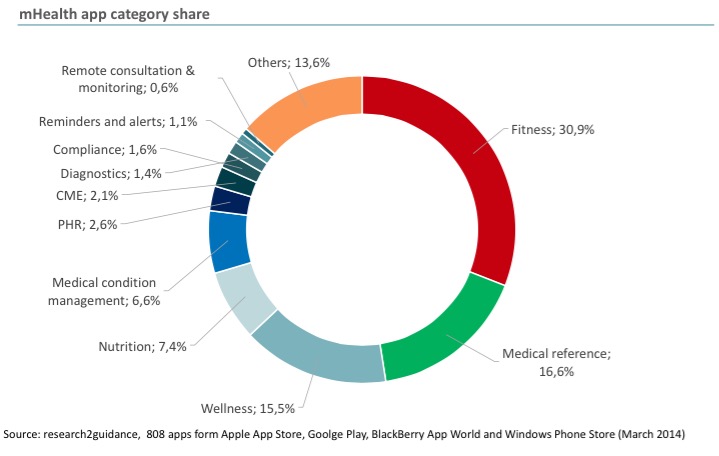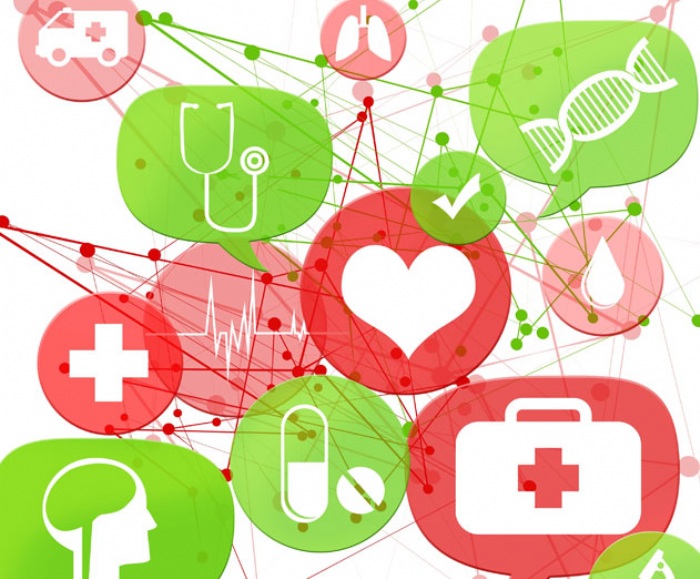Boom of the healthcare apps
Thursday, December 4, 2014

|
Richard Harris |
Healthcare apps are exploding in the app store and the rise might have you think the space is already too crowded, but think again.
If we take a look at different business verticals that go mobile, healthcare is one that you read a lot about these days. Many companies develop apps to track human body parameters or to allow virtual doctor-patient communication. There are a plethora of apps related to healthcare. But why is this booming industry among the leaders in the mobile ecosystem?
It seems to me the answer is rather simple. Healthcare is one of the most challenging industries on the planet. Many countries are facing a serious lack of medical professionals and medical help. Medical specialist education is a long process. It takes a minimum of 7 to 8 years of schooling and training for an individual to become a medical professional.
In this world of 7.2 billion people, we need more and more trained healthcare specialists to keep up with the exponentially growing population, and it presents a challenge especially in Africa and other underdeveloped countries.
Sharing Economy for HealthCare
Healthcare is one of the most complicated business verticals to conquer and by looking at the figures I will provide later on in this post, you may think that the barrier to enter this market is extremely high. I am going to show you that it is still a penetrable and lucrative industry to go into.
Let’s consider the growing trend - sharing economy. I’m talking about companies like Uber, Airbnb, and Zipcar. These are examples of how the economy, which is based on sharing of commodities as opposed to owning them, may help the healthcare industry take the next step.
As a side note, human beings have been dealing with a sharing approach for a long time - farming. We began to farm roughly 12,000 years ago. Prior to that we lived in hunter/gatherer groups and shared everything we managed to find in the environment we lived in. You can see this duality in daily life today. You may want to live in your own house and drive your own car, but you do see the value in Uber taxi services or AirBnb habitation renting services because they make sense economically and provide a great alternative to the classic model based on ownership.
Now back to the issue of the growing lack of qualified healthcare professionals. Medicine has the potential to become the next sharing economy branch. I don’t mean that starting tomorrow you will be able to perform heart surgery for your neighbor down the street, but there are a lot of components in healthcare in which sharing economy should work.
For example, Uber’s recent effort to deliver flu shots. The point is that all of these healthcare ideas, an especially sharing economy based, will require mobile apps and this is the venue for you to consider.
Boom of the Healthcare Apps
Let’s talk take a look at recent numbers compiled by Recearch2Guidance early this year.

According to the recent Recearch2Guidance report in Q1, 2014 there have been already 100 thousand apps combined on both the iOS App Store and Google Play. The market revenue reached $2.4 billion in 2013 and is projected to grow to $26 billion by the end of 2017. So, what apps will be leading?
Shown in the top image is a graph that presents the categories split among different medical mobile apps on the iOS App Store, Google Play, BlackBerry App World and Windows Phone Store.
The top three categories are Fitness, Medical Reference and Wellness. These are the healthcare app market sectors that are the most crowded and I would not advise tackling these categories with your mobile app development project quite yet. Let’s take a look at two online services and corresponding apps that were recently dubbed as “The Uber of Healthcare”:
- Plushcare: An online remote service for patients to visit a doctor virtually via video call, get a diagnosis, receive treatment recommendations and/or get a prescription. It helps people access medical care without having to leave home or spend hours waiting in a clinic.
- Zeel: A message-on-demand service for people to get in touch and book a professional licensed therapist at home.
The question that any app developer would have at this point would be, “how can I find and approach businesses in the healthcare industry to build an app for?”
Nopparat Yokubon from Google answers
Online Tools to Reach Out Businesses
A great way to reach out to healthcare companies that are looking for app development expertise is to attend an event like Health 2.0 Conference or mHealth Summit. These are big events that provide the opportunity for you to get in touch with healthcare professionals that are looking for app developers to build an app for their service or product. There are also several online platforms that help to connect app developers and businesses. These aren’t necessarily healthcare-focused, but still, present a viable channel.
- AppFutura is one of the biggest marketplaces to look for an app development project. It features over 12,000 registered developers and more than 6,000 apps developed as a result of app developers working on projects submitted to the platform by businesses.
- Apptank claims to be the only premier site to find professional app developers and premium app projects.
- mHealth is a Linkedin Groups which has over 6,500 members and presents a community of professionals working in healthcare and mhealth related businesses.
- Healthcare Technology Group is another a Linkedin Groups focusing on Innovation, mHealth, & Telemedicine has over 3,000 members and continuously growing.
Last but not least there are freelance platforms like Guru and Elance. Both have been on the market since late 1900’s early 2000’s. These are the most established channels. Based on my experience of using these tools, they suffer from a pretty high level of bureaucracy, which helps to keep the whole project management secure but at the same time, slow.

Become a subscriber of App Developer Magazine for just $5.99 a month and take advantage of all these perks.
MEMBERS GET ACCESS TO
- - Exclusive content from leaders in the industry
- - Q&A articles from industry leaders
- - Tips and tricks from the most successful developers weekly
- - Monthly issues, including all 90+ back-issues since 2012
- - Event discounts and early-bird signups
- - Gain insight from top achievers in the app store
- - Learn what tools to use, what SDK's to use, and more
Subscribe here

_r2f0ox12.jpg&width=800)










